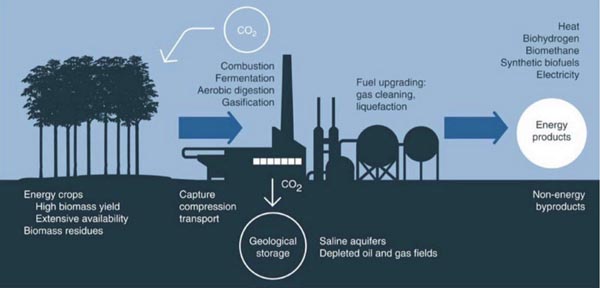Biomass Power ‘Carbon Negative’ Concept Introduced
![]() Print this Article | Send to Colleague
Print this Article | Send to Colleague
According to The Green Optimistic, San Francisco, Calif., USA, Researchers from the University of California at Berkeley are currently exploring the possibility of combining energy production from biomass with carbon capture and sequestration techniques (BECCS). Their initial findings indicate that this is a "match made in heaven," which in about 30 years from now could transform the power systems in the Western U.S. and make them "carbon negative" instead of simply carbon neutral.

According to the estimations, derived from computer model simulations, implementing the technique could lead to reduction in emissions in Western North America of 145% by year 2050. This would be possible if biomass, combined with carbon capture and sequestration, is also accompanied by aggressive renewable energy deployment and reduction in emissions from fossil fuels.
In various different scenarios simulated by the scientists, reductions in emissions as a result of BECCS begin at 7%. According to the team, the difference is so big because not all depends on implementation, but other factors such as governmental involvement (or lack of it), also play quite a substantial role. Nevertheless, the scientists are convinced that by implementing BECCS, California will not only be able to reach its emission targets of 80% reduction, but could actually double this.
The concept is part of ongoing research, meaning that a lot more can be expected to come out of it. As it stands right now, there are still quite a few uncertainties that have to be acknowledged. To start with, carbon capture techniques are not yet as widely used as many developing scientists hoped for, but being identified as one of the few solutions to climate change that the latest IPCC report outlined, the hope for fast development is quite big. In addition, using biomass for energy is part of a strong ongoing field of research and development.
Part of this work is already published in the prestigious journal Nature Climate Change.


